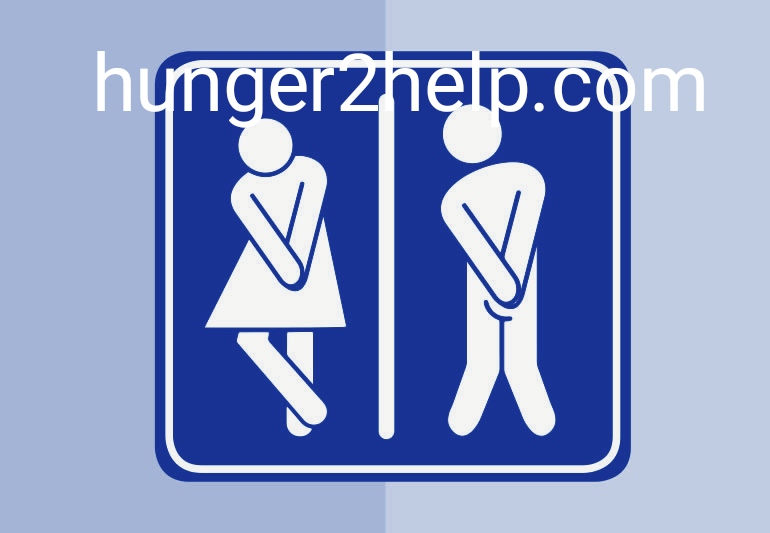OVERVIEW:
In this article, I’ll give you a quick overview of everything you need to know about urination timing.
If you’ve ever pondered whether you go a couple of times or too soon after you drink water, I’ve got the answers you’re looking for below.
Remember, however, that not everyone’s body is entirely the same.
Between two healthy adults, there are several factors that can contribute to the frequency with which you urinate and the urgency you feel after drinking water, too.
Men and women also have differences when it comes to urination, so for the purposes of this article, I will be speaking very generally related to this information.
Keep this in mind when you check out the facts we have listed below.
I hope that, by the time you finish reading this article, you’ll be more literate and able to describe whether or not you need to speak to your healthcare provider about your urination.

Water and Urination Facts:
No matter what might be going on with your body, you need to be well aware of what’s normal and what isn’t.
If you’re a healthy adult, there’s a justly standard normal range your urination should fall into.
If it diverges notably from this range, this could be a sign there’s something going on that needs to be checked out.
In some cases, people just simply don’t pee as much or as quickly as others, or vice-versa, and this can be overall normal for you too. It all depends on your sole body.
How much urine can my bladder hold after drinking water?
A healthy adult bladder can hold 16 ounces of urine for anywhere between 2 and 5 hours.
Two to five hours may seem like a pretty large range, but it all depends on your body and your physical makeup.
Men can usually hold their urine longer than women, and pregnant women or those who are on their period may not be able to hold urine as long as other women, in turn.
Your age, weight, and level of physical interest can also make a difference.
Urine is more than just the water you drink:
When we say you can hold 16 (weight in ounces) of urine, this doesn’t mean 16 ounces of liquid you’ve had to drink, so keep this in mind!
The more you drink extra water, the more frequent and urgently you’ll need to pee it’s just nature.

How long does it take to pee after drinking water?
If you drink 2 liters of water per day, which is the recommended volume, you should have to pee roughly every four hours.
Again, this is not a solid ordinance, but it’s a good place to get started when you’re thinking about how often you go in a day.
Most adults should need to pee around six to eight times a day at this ratio, but keep in mind that this number will go up depending on how much water and other liquids you have around your day, too.
On the other hand, if you aren’t getting enough water, you’re not going to do excessive urination because your body is dehydrated.

What can make me urinate more often?
Many factors can increase the volume of your urine. When you go to the bathroom.
You’re probably pretty used to how long it takes you to do with peeing and how much urine you have at any stated trip to the toilet.
This can change depending on a few things, some of which are more regarding than others.
Diabetes:
This state can affect the volume of your urine as well as how continuously you go throughout the day.
If you know you have diabetes and your urination patterns change, tell your doctor right away.
Medication:
Some types of medication, both short-term and long-term, are diuretics, they can do allergic reactions.
Which means they’ll make you have to go to the bathroom more often than you would if you weren’t taking the medication.
If this is a normal side effect of your medication, it’s not a big concern.
Caffeine and alcohol intake:
More caffeinated drinks, alcohol, or energy drinks on daily basis equal more trips to the bathroom, It causes urinary frequency and ultimately it will lead to damaged kidney function or bladder infections.
Pregnancy:
In pregnancy, women have to go to the bathroom much more frequently.
Prostate problems:
An enlarged prostate can press against the urethra (the tube that carries urine out of the body) and block the flow of urine.
This causes the bladder wall to become irritable. The bladder begins to contract even when it contains small amounts of urine, causing more frequent urination.
Interstitial cystitis:
This condition of unknown cause is characterized by pain in the bladder and pelvic region. Often, symptoms include an urgent and/or frequent need to urinate.
Diuretic use:
These medications that are used to treat high blood pressure or fluid buildup work in the kidney and flush excess fluid from the body, causing frequent urination.
Stroke or other neurological diseases:
Damage to nerves that supply the bladder can lead to problems with bladder function, including frequent and sudden urges to urinate.

Hypocalcemia:
It means the calcium levels in your blood are above normal. Causes include overactive parathyroid glands (hyperthyroidism or hyperparathyroidism),
Other illnesses (tuberculosis, sarcoidosis), inactivity, and even cancer (lung, breast, kidney, multiple myeloma). Besides frequent urination, symptoms of hypocalcemia may include:
Excessive thirst
Stomach upset
Nausea and vomiting
Constipation
Mental health
Bone and pelvic muscle pain and weakness
Brain issues: Confusion, fatigue, and depression
Heart attack stroke (rare): Racing or skipping pulse (arrhythmia) and other heart problems.
SIDE EFFECTS AND CAUSES OF FREQUENT URINATION:
In most people, the bladder is able to store urine until it is convenient to go to the toilet, typically four to eight times a day.
Needing to go more than eight times a day or waking up in the night to go to the bathroom could mean you’re drinking too much and/or too close to bedtime.
Or it could signal a health problem. Frequent urination can be a symptom of many different problems from kidney disease to simply too much fluid intake.
When frequent urination is accompanied by fever, an urgent need to urinate, and pain or discomfort in the abdomen, you may have a urinary tract infection.
How long does it take to urinate, precisely?
It should take you about seven seconds to complete urination when you go to the toilet.
Like everything else on this list, this is a generlization, but it’s a good estimated range to consider for a healthy urinary tract.
If you find that it takes you a lot longer, you may have a urinary tract infection.
If you don’t pee very long at all when you felt like you had to go, you may have an overactive bladder.
Conclusion:
I hope you’ve been able to learn a little something about the relationship between drinking water and urinating.
I also expect that, if you had any queries about your own urination frequency or urgency, I’ve been able to clear some of that up for you and help you decide whether or not it’s time to talk to your family doctor.
Remember that not everyone experiences urination the same way, but that you should be in the realm of “normal” for a healthy adult.
Otherwise, you may need some medical advice or a lifestyle change to help solve the matter.
But what happens if your experience is very extreme compared to what’s listed above? Is it a bad sign if you feel like you need to pee immediately after you drink cups of fluid? What about if it takes a long time to reach that point?
If you feel like you need to pee right after you drink water, you may be drinking too much water. This may also be a sign of some damage or “crossed wires” with the blood vessels in your bladder.
Which can lead to overactive urinary bladder issues. If this is true of you, then you may need to take medical advice to solve this problem.
You should speak to an experienced doctor for more information. On the other hand, if it takes you a long time to feel the need to urinate after you drink water, and you think you should be going more frequently, this can be a sign of an infection or a blockage in your urinary tract.
Note: If any questions arise regarding this article you can ask thanks for studying this article I hope this article is very beneficial for you.
Hi I’m Bilal Malik, a digital marketing and blogging expert holding years of experience.










